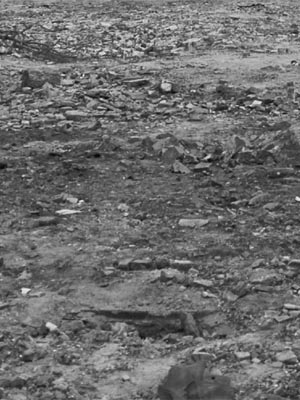If in everyday life, you are asked about continued existence after death by one of those people who would like to know everything but refuse to learn anything, the most appropriate and approximately correct answer is: ‘After your death you will be what you were before your birth.’ For this answer implies that it is preposterous to demand that a species of existence which had a beginning should not have an end; in addition, however, it contains a hint that there may be two kinds of existence and, correspondingly, two kinds of nothingness.
-Arthur Schopenhauer
 Nihilism means accepting the world as the source of reality. Not our thoughts, not our emotions/morals/aesthetics, but the world itself, much as we’d examine a machine.
Nihilism means accepting the world as the source of reality. Not our thoughts, not our emotions/morals/aesthetics, but the world itself, much as we’d examine a machine.
To look at life without judgment in such a way, we must see our lives as the momentary animal existences they are — and then look at their troubling aspect, which is that through our intellect we can touch the organizational principles of this universe.
But I said “can.” There is no guarantee. And it is unclear if most people are doing more than reacting to their impulses/desires, then fabricating a “reason why” they did what they did, and then justifying that according to Big Epic Social Goods like fighting racism, stopping fascism, making money, helping the underprivileged and keeping the peace.
From a casual — and as D.A. Schuel will note, entirely unproven and anecdotal — viewpoint, most people seem more than half in love with easeful death. To me they seem more afraid of social censure than mortality, and so they are content to die so long as they are well thought of. Their fear is that their lives will go unnoticed, and while they do not seem to notice that in turn over generations those lives that remember vanish, they are content for family and friends to know they were here, and now are gone.
This seems almost sensual, in a post-sense way; how would I be treated, and what would I be eating, and would someone want to have sex with me, if they were considering my death, which then forces a summarizing of my life?
As the existentialists were fond of saying, our problem in modern existence is not a lack of life after death. It’s a lack of life after birth. Unlike the postmodernists, who are sure our mortal fear in the face of scientific knowledge is the culprit, I blame something else: there is no longer a single organizing narrative and values system so that as we fade away, we can say, “Well, I did well by all the values we hold dear together, and if I had some bad days or missed out on some things, it was in sacrifice to that.” No warrior wants to die for a numbered regulation, but they don’t seem to mind dying on the quest to obliterate a great evil or create a vast good.
So in life, as in death, we have two kinds of existence — and two kinds of nothingness.
Leave a Reply
You must be logged in to post a comment.